You’ve heard the outcry to “Adopt Don’t Shop” or “Don’t Breed or Buy While Shelter Pets Die”. Even the biggest pet adoption advocate seem to have friends who have purchased their pet from a breeder or pet store. This is a list of common adoption myths, in the hopes that you can gently point friends toward this post when they talk about why they’ve got their heart set on buying.
Myth #1: I don’t know what I’m getting
There may in fact be more information available about an adoptable pet than one from a breeder or pet store.
Many of the pets posted online are in foster care. Foster parents live with their charges 24-7 and can often tell you, in detail, about the pet’s personality and habits. If the pet is at a shelter, the staff or volunteers may be able to tell you what he or she is like.
At the very least, you can ask the staff if the pet was an owner surrender (rather than a stray) and, if so, what the former owner said about him or her. Quite often pets are given up because the owner faced financial or housing issues (more on that later). You can also ask about the health and behavioral evaluations the pet has undergone since arriving at the shelter. In contrast, pet store owners rarely have an idea of what a pet will be like in a home.
Myth #2: I can’t find what I want at a shelter
While it’s true that adopting a purebred or a young puppy can require more patience than going to a pet store or breeder, it can also lead to a better match for you and your family, for the reasons described above.
If you can’t find the pet you’re looking for online, don’t give up. There are breed-specific rescues for just about every breed, and most of them post their pets on online as well.
Myth #3: I can get a free pet, so why pay an adoption fee?
According to the National Council on Pet Population Study and Policy (via the ASPCA), approximately 65% of pet parents in the U.S. get their pets for free or at low cost, and most pets are obtained from acquaintances or family members. The NCPPSP also reports that pets acquired from friends make up more than 30% of pets surrendered to shelters.
While getting a “free” pet may seem like a bargain at first, you’re then responsible for veterinary costs that shelters and rescue groups usually cover, including:
Spaying/neutering $150-300
Distemper vaccination $20-30 x2
Rabies vaccination $15-25
Heartworm test $15-35
Flea/tick treatment $50-200
Microchip $50 (Read more about what your adoption fee covers.)
Myth #4: I’ll be “rescuing” a sick puppy from a pet store
Pet stores play on our sympathies by keeping pets in small enclosures and in storefronts. But paying the pet store to let you “save” the puppy or kitten gives those stores exactly what they want — income — and perpetuates the cruel industry of puppy mills.
Myth #5: Pets are in shelters because they didn’t make good pets
In fact, the main reasons pets are given up include:
Owners are moving to housing that don’t allow pets (7% dogs, 8% cats)
Allergies (8% cats)
Owner having personal problems (4% dogs and cats)
Too many or no room for litter mates (7% dogs, 17% cats)
Owner can no longer afford the pet (5% dogs, 6% cats)
Owner no longer has time for the pet (4% dogs)
Myth #6: Shelter pets have too much baggage
Rescued pets have full histories … something that can actually be GREAT for adopters. Remember, all pets– even eight-week old puppies and kittens — have distinct personalities. Those personalities will either jive with your home and lifestyle or not. Work with rescue group or shelter staff to find the right fit for you.
(adapted from Petfinder.com)
Pet Adoption and Recovery
The Recovery Village offers great information on the benefits of adopting a pet while in recovery for a substance use or mental health disorder. It can essentially improve your overall mood, slake your loneliness, and give you a sense of purpose while lowering the chances of drug and alcohol abuse.
The Human Animal Bond Research Institute reports that:
- 74 percent of pet owners said having a pet improved their mental health
- 75 percent of pet owners reported a friend’s or family member’s mental health has improved from pet ownership
- 83 percent of baby boomers and 82 percent of greatest (aka silent) generation individuals reported more personal experience with mental health improvements from pets than millennials (62 percent) and generation X (72 percent)
Visit their page for more information.



